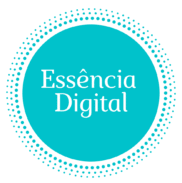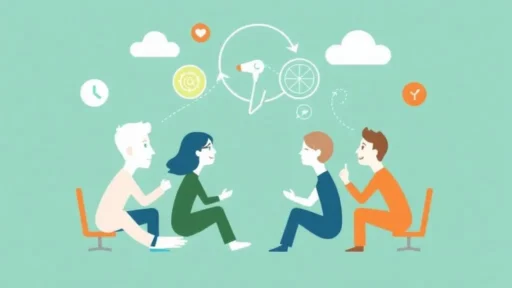In today’s freelance economy, your portfolio showcases your talent, but your people skills determine your trajectory. The modern freelancer is rarely a true soloist; they are the hub of a network, constantly plugging into new client cultures, collaborating with distributed teams, and navigating a complex web of professional relationships. In this environment, technical skill is the baseline. Emotional Intelligence (EQ) is the differentiator.
EQ is the unspoken part of every project brief—the ability to manage yourself, understand your clients, and harmonize with collaborators you may have never met in person. It’s the essential skillset that allows you to translate a client’s vague vision into a concrete deliverable, handle critical feedback with grace, and build the kind of trust that turns one-off gigs into long-term partnerships.
This guide explores how to leverage emotional intelligence as your most powerful tool for successful freelance collaboration.
The Unspoken Job Description: Your Role as a Communicator
Emotional intelligence is your ability to perceive, understand, and regulate emotions—both in yourself and in others. For a freelancer, this is a daily necessity. Since most of our communication happens through a screen, we operate in a “tone void.” A short email from a client can be interpreted as either efficient or angry. A question on Slack can feel like a helpful query or a micromanaging intrusion.
A high-EQ freelancer doesn’t leave tone to chance. They understand that their job isn’t just to deliver the work, but to manage the communication around it. They use EQ to:
- Prevent misunderstandings before they start.
- Build rapport and trust through digital channels.
- De-escalate tension when things go wrong.
- Adapt their communication style to fit different personalities.
Your Internal Dashboard: Mastering Self-Awareness
Self-awareness is the bedrock of emotional intelligence. Think of it as your personal dashboard. It’s the internal system that tells you when your “engine” (patience) is running hot, when you’re low on “fuel” (creative energy), or when a “warning light” (an ambiguous email from a client) flashes.
Without self-awareness, you’re flying blind. You might react impulsively to feedback or take on a project you know will lead to burnout simply because you haven’t checked your own “dashboard.”
EQ in Action:
- Low Self-Awareness: A client sends a vague brief. You feel annoyed and fire back an email saying, “I can’t work with this. I need more detail.” This creates friction.
- High Self-Awareness: The same vague brief arrives. You notice your feeling of annoyance but recognize it’s rooted in a fear of doing the work incorrectly. You pause, take a breath, and respond with a collaborative solution: “Thanks for sending this over! To make sure I nail your vision, could we schedule a quick 15-minute call to walk through these points together?”
To build this skill, end each day with a two-minute reflection: What was my most challenging interaction today? What did I feel, and why? How did my response serve the project?
The Collaboration Superpower: Practicing Proactive Empathy
Empathy is the ability to step into someone else’s shoes and understand their perspective and feelings. In freelance collaboration, this is a superpower. It allows you to anticipate needs, solve problems before they escalate, and make your clients and team members feel genuinely understood.
This isn’t just about being nice; it’s a strategic tool. An empathetic freelancer considers the unseen pressures on the other side of the screen.
EQ in Action:
- You notice a team member on a collaborative project is communicating in short, stressed sentences. Instead of getting annoyed by their brevity, you proactively reach out: “Hey, it seems like things are really hectic on your end. No need for a long reply, just let me know if there’s anything I can do on my end to make your part easier.”
- A client is slow to provide feedback. Instead of assuming they’re ignoring you, you consider they might be overwhelmed. You send a gentle, helpful nudge: “Hi [Client Name], just checking in on the draft. No rush at all, just wanted to make sure it’s on your radar. Let me know if you have any questions!”
The Professional’s Anchor: Emotional Regulation Under Pressure
Freelancing is filled with high-stakes moments: a project scope that’s spiraling out of control, a payment that’s overdue, or a collaborator who fails to deliver their part on time. Emotional regulation is your ability to be the anchor in these stormy seas, keeping yourself and the project steady.
It doesn’t mean you don’t feel frustration or anxiety. It means you don’t let those feelings dictate your actions.
A simple technique is the S.T.O.P. method:
- Stop. Before you type that angry email, just stop.
- Take a breath. A single deep breath can reset your nervous system.
- Observe. Acknowledge your emotion without judgment (“I’m feeling really frustrated right now”).
- Proceed. Choose a response that aligns with your professional goals, not your immediate emotional impulse.
When you remain calm and solution-oriented, you project confidence and control, which reassures clients and encourages a more productive response from collaborators.
The Currency of Collaboration: Building Trust with Transparent Communication
In the freelance world, trust is your most valuable currency. It’s earned through a track record of honesty and reliability. Emotional intelligence is key to communicating transparently, especially when the news is bad.
If a deadline is at risk, the high-EQ approach is to communicate early and professionally.
- State the situation clearly: “I’m writing to give you an update on Project X. I’ve encountered an unexpected technical issue that is impacting our timeline.”
- Take responsibility: “While I’m working to resolve it, it means the delivery will be delayed.”
- Propose a solution: “I am confident I can resolve this and will deliver the completed project by [New Date]. I will keep you updated on my progress tomorrow.”
This approach builds immense trust. It shows you are accountable, proactive, and respectful of your client’s own planning needs.
Conclusion: Your Most Defensible Skill
In an age of AI and automation, purely technical skills are becoming easier to replicate. Your ability to collaborate, communicate, and connect with other humans is your most durable and valuable asset. Emotional intelligence is no longer a soft skill; it is the essential framework for a modern, successful freelance career.
By actively cultivating self-awareness, practicing empathy, and regulating your responses, you transform yourself from a simple service provider into an indispensable strategic partner. That is the key to not just surviving, but thriving, in the collaborative world of freelancing.

